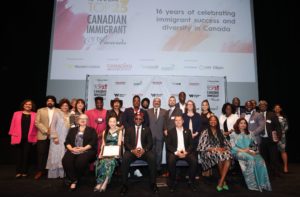Canada Visa Refusal – Impact of Family Ties

Maria, a Zimbabwean educator, applied for an entry visa to Canada. But, an immigration officer refused her application. They cited her lack of strong family ties outside Canada as the reason. She felt uncertain about her next steps. Meanwhile, her desire to visit Canada remained strong, urging her to seek guidance. Therefore, she began researching how to strengthen her application and explore alternatives.
The main cause of visa refusals in Canada
Before explaining family ties, let’s discuss visa refusals. Unless you are visa-exempt, you must apply for a visa to visit, study, or work in Canada. We call these visas TRV, which stands for Temporary Resident Visa. Immigration officers could refuse TRV applications for many reasons. However, the one that shines the most is under subsection 179(b) of the Immigration Regulations.
R179(b) An officer shall issue a temporary resident visa to a foreign national if, following an examination, it is established that the foreign national will leave Canada by the end of the period authorized for their stay under Division 2.
Source: CanLII
Here is an example. You enter Canada with a valid visa. The border officer allows you to remain in the country for six months. However, you will stay in Canada for over six months or file a refugee claim. These are both breaches of R179(b). The role of an officer who reviews your TRV application is to predict if you will likely breach this section. Consequently, they will refuse the application if, on the balance of probabilities, they conclude you’ll breach R179(b).
How to convince the officer you comply with R179(b)
There are many documents you may present to assist you in convincing the officer you won’t breach R179(b). Here are some examples:
- Financial stability
- Having a stable job back home
- Showing enough financial resources for your travel
- Ownership of significant assets such as properties
- Purchasing medical insurance for the trip to Canada
- Having multiple sources of income (e.g., your job, rental properties, etc.)
- Emotional stability back home
- Being in a long-term relationship
- Strong family ties
- Your spouse or children are not accompanying you to Canada.
- Having a large circle of friends
- Being a frequent traveller, especially to countries that have immigration standards similar to Canada
Of course, this list is not exhaustive. Moreover, you may not have all of these, yet the officer issues the visa. Lastly, you must know that your nationality plays a significant role in visa issuance. For example, officers will more likely approve a Chinese citizen’s visa than an Iraqi citizen.
The role of family ties in visa refusals
An officer may refuse a TRV application because one or more of the following occur:
- You have strong family ties in Canada: If this applies to you, they may conclude you have the motive to remain in Canada regardless of your status.
- Your family members in Canada are refugees: The behaviour of your family members in Canada could affect the officer’s decision, especially if they are very close to you. For example, if your children are refugees or protected persons in Canada, the officer could conclude you may also take the same path.
- You do not have strong family ties outside Canada: If you do not have many family members outside Canada, the officer could conclude that you do not have strong reasons to return.
Remember that the visa issuance process highly depends on the officer’s discretion. Therefore, something that an officer perceives as strong family ties may not be strong enough for another officer. Furthermore, officers rely heavily on Artificial Intelligence (AI) tools like Chinook nowadays. As a result, they may overlook the documents you have provided for the proof of family ties.
Thanks to my colleagues at ICN (Immigration Consultants Network), I am sharing three Federal Court decisions that could assist you in better understanding and handling family ties.
Sangha v. Canada (Citizenship and Immigration), 2021 FC 760 (CanLII)
In the case of Sangha v. Canada, the Federal Court of Canada granted a judicial review application filed by a family of three from India. The family had their Temporary Resident Visa (TRV) applications denied twice by a visa officer because they would likely not leave Canada at the end of their authorized stay, lacked sufficient personal funds, and had insufficient ties to India. The Court found these decisions unreasonable and criticized the visa officer for not engaging with the relevant evidence, especially the financial documentation and strong familial ties in India. The Court ordered the matter to be redetermined by a different decision-maker, directing attention to the evidence previously overlooked. Paragraph 34 of the decision includes interesting points.
[34] The Officer’s reasoning is not justified in relation to the plethora of evidence that establishes the Applicants’ ties to India (Vavilov at para 85). The Applicants aptly lay out their submissions on this matter in their Memorandum of Argument:
[22] The evidence before the Officer was that the Applicant has been a farmer in India since 1998, running a dairy farm. Proof of his farming operation was submitted with the application, along with proof of the Applicant’s property ownership in India. It is incomprehensible to find that someone who has resided in a country for the entirety of their life; has held long-term employment in that country running a farm; owns property in that country; has raised a family in that country; has a son enrolled in school in that country, would not be established. Further, the Applicant also has strong familial ties to India — his elderly father.
Sangha v. Canada (Citizenship and Immigration), 2021 FC 760 (CanLII), https://canlii.ca/t/jj023, retrieved on 2024-04-13
If I were to represent Sangha’s family, I would have asked them to provide more documents and not limit themselves to mentioning the elderly father only. Of course, I’ll talk about documents in this article.


Thavaratnam v. Canada (Citizenship and Immigration), 2022 FC 967 (CanLII)
In Thavaratnam v. Canada, the Federal Court dealt with the judicial review of a Temporary Resident Visa (TRV) refusal for Mahashanker Thavaratnam, a Sri Lankan citizen. The visa officer denied the application, raising concerns about Thavaratnam’s intent to leave Canada after his stay, his family ties, his financial status, and the legitimacy of his business purpose in Canada.
Thavaratnam’s family ties play a central role in the arguments presented. He claimed strong ties to Sri Lanka, evidenced by his wife, property, and stable employment there. However, he also has family in Canada, including his parents and sister’s family. The court found the visa officer’s decision unreasonable, particularly criticizing it for not adequately engaging with the evidence of Thavaratnam’s strong ties to Sri Lanka, which would support his intent to return there after he visits Canada.
The court allowed the judicial review application and remitted the TRV application to be reconsidered by a different officer, emphasizing the need for a thorough assessment of Thavaratnam’s ties to both Sri Lanka and Canada and clearer reasoning in the decision-making process regarding how these ties influence his likelihood of leaving Canada after his visit.
Paragraph 24 of the decision gives an idea of how officers could compare family ties in and outside Canada.
[24] The Respondent proposes various explanations for the Officer’s conclusions. It asserts that the Applicant’s ties to Sri Lanka are weak when weighed against his family residing in Canada because only his wife is in Sri Lanka and they have no children…
Thavaratnam v. Canada (Citizenship and Immigration), 2022 FC 967 (CanLII), https://canlii.ca/t/jqcp8, retrieved on 2024-04-13
You must consider this matter in your applications. If dealing with strong family ties in Canada, show you have even stronger ties outside Canada. Remember, family is not just your parents, spouse, and children. You may also show you have other relatives in your home country and a strong relationship with them. Think of your aunts and uncles, cousins, and even distant relatives close to you.
Bunsathitkul v. Canada (Citizenship and Immigration), 2019 FC 376 (CanLII)
In the case of Bunsathitkul v. Canada, the Federal Court addressed the judicial review applications for two half-siblings from Thailand, Arada Bunsathitkul and Nonthagorn Sangchai, who sought Temporary Resident Visas (TRVs) to attend a summer camp in Ontario, Canada.
The siblings had previously been refused visas because they lacked sufficient family or economic ties to Thailand to motivate their departure from Canada after their stay. Additionally, the visa officer questioned the authenticity of their intentions to learn English at the camp, as they had no prior history of attending summer camps or taking English as a Second Language (ESL) classes in Thailand.
The core issue in the judicial review was the reasonableness of the visa officer’s decision, particularly focusing on the siblings’ family ties and economic establishment in Thailand. The applicants lived with their grandmother and attended school in Lopburi, Thailand, while their mother lived and worked in Bangkok.
Despite the officer’s initial concerns about their ties to Thailand and intentions for the trip, the court found the visa officer’s decision unreasonable. The court criticized the decision for not adequately considering the evidence of the siblings’ strong family ties in Thailand, including their schooling and the guardianship of their mother. The court also noted that expecting the same level of economic proof from children as adults was unreasonable. It highlighted that their travel and camp expenses were fully covered by scholarships, further supporting their genuine intent to return to Thailand after the camp.
Consequently, the court granted the judicial review applications. It remitted the siblings’ TRV applications for reconsideration, instructing that they be reassessed in light of the reasons provided by the court, emphasizing the siblings’ well-documented ties to Thailand and the fully funded nature of their visit.
I like paragraph 20 of this case, which reflects how sometimes officers are distanced from reality. However, since the applicant has the burden of proof, you must explain the obvious to them. Otherwise, they’ll refuse the application.
[20] The difficulty with the application of these factors in the present case is that they do not readily fit the circumstances that were presented to the Officer for consideration. The Applicants are children, their family ties are exclusively in Thailand, they were evidently not seeking employment in Canada and they had no history of attempts to immigrate to Canada – aside from Arada’s prior application for a TRV, if it could be characterized as such.
Bunsathitkul v. Canada (Citizenship and Immigration), 2019 FC 376 (CanLII), https://canlii.ca/t/hzmfg, retrieved on 2024-04-13
The most important lesson from this case is to provide as many documents as possible. Do not assume you need not provide documents because the matter is obvious. Although children depend highly on their families, the officer ignored this.
Documents in support of family ties
By filling out the Family Information form (IMM 5707 or IMM 5645), you introduce your close family members to IRCC. However, this is not enough. Please consider presenting the following documents:
- A detailed affidavit by the applicant that emphasizes their motivation to leave Canada: Ensure that strong family ties outside Canada are mentioned in that form. Moreover, if you have close family members in Canada, explain why their presence won’t entice you to break the law.
- Support letters from family and friends: Ask your family members and friends to write support letters for you. The letters must explain your close relationships and respect for law and order.
- Visual presentations: Pictures of your family gatherings could be convincing. However, ensure to mention the date and location of the picture. Also, mention who is in the picture.
- Any other documents that show your family ties: For example, if you co-own a property with a relative or run a business together, it could show you are close to that relative.
I must emphasize that more than ever, Chinook and your nationality could work against you. Therefore, provide many documents to enhance your application.
Let us help!
If you wish to apply for a TRV, we can help you. Please book a consultation session with me. Alternatively, contact our office or fill out the following form.
Would you please fill out our free assessment form if you wish to visit or move to Canada? We will review it for free, but we will contact you only if we find an opportunity for you. Alternatively, you may book a consultation session. Consultation sessions are not free, but you will receive formal immigration advice from a licensed practitioner.
Al ParsaiAl Parsai, LLM, MA, RCIC-IRB
Regulated Canadian Immigration Consultant
Adjunct Professor – Queen’s University – Faculty of Law
Ashton College Instructor – Immigration Consulting
Author – 88 Tips on Immigration to Canada
Fill our Free Canada Immigration Assessment Form in your language!
 ‘ Credit:
‘ Credit:Original content by www.settler.ca – “Canada Visa Refusals: Impact of Family Ties”
Read the full article at https://www.settler.ca/english/canada-visa-refusals-impact-of-family-ties/








